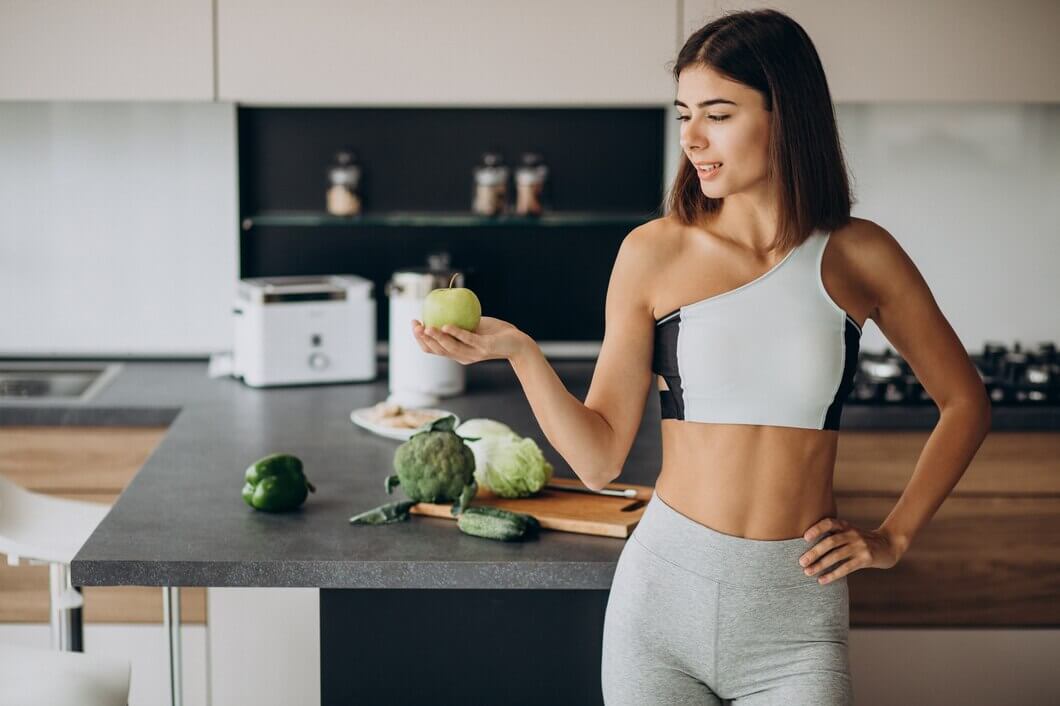A healthy life-style has many benefits. The skin is the body’s largest organ and can be extremely sensitive. It can become highly reactive to foods that are eaten, drinks consumed or air inhaled.
The skin is the body’s largest organ. It can exert a “first line” of defence against many foreign substances. Because of this, it can affect a person’s health just by a chemical reaction.
With a healthy diet and lifestyle, your skin can be superbly healthy. In this blog, we’ll explore the five most common impacts that diet and lifestyle can have on the skin, so you can ensure you’re taking the best care of your skin!
1. Hydration
Hydration is essential to skin health and beauty, and it’s important to keep your body well hydrated throughout the day. Water is the best way to keep your skin hydrated, as it helps to reduce wrinkles, dryness, and other signs of aging. Unfortunately, many of us don’t drink enough water throughout the day.
Hydrating for skin health goes beyond just keeping the skin moisturized. When our bodies are properly hydrated, it helps flush out toxins, which can positively impact our skin. Dehydration, on the other hand, can make our skin dull and flaky and can even cause breakouts. Proper hydration is also important for overall health, as it helps the body to stay functioning at its best.
The impacts of diet and lifestyle on the skin cannot be overstated. Eating a balanced diet can help keep your skin healthy and hydrated, while an unhealthy and unbalanced diet can lead to skin problems, such as wrinkles and dryness. Additionally, lifestyle choices, such as smoking and drinking alcohol, can negatively impact your skin health.
It’s important to ensure that you’re drinking plenty of water throughout the day and to have a healthy and balanced diet to keep your skin healthy and hydrated. Taking care of your skin through hydration is the best way to help keep it looking radiant and young. So make sure you stay hydrated and take care of your skin for the best results.
2. Healthy Fats
Eating the right foods, getting enough sleep, and exercising regularly can tremendously impact your skin’s health. Healthy fats are among the most important components of a healthy diet and lifestyle.
Healthy fats are essential for skin health, providing the body with essential fatty acids that help to nourish the skin and keep it healthy. Including nuts and avocados in your diet can help provide these essential fatty acids and omega-3 fatty acids, which can help reduce inflammation and improve overall skin health. Furthermore, these fats are also a great source of energy, helping keep your skin youthful and vibrant.
Healthy fats also provide the skin with the necessary antioxidants to protect it from environmental toxins and pollutants. These antioxidants help neutralize free radicals, molecules known to cause skin damage. Additionally, healthy fats can help reduce wrinkles and fine lines and improve the skin’s elasticity, keeping it looking firm and youthful.
Regarding skin health, it is important to consume a balance of healthy fats, carbohydrates, and proteins. This balance will provide the necessary nutrients to keep your skin healthy and looking its best. It is also important to note that fatty acids should not be over-consumed, as too much fat can lead to an imbalance in the body, resulting in clogged pores and other skin issues.
So if you are looking for a way to reduce wrinkles and improve the look and feel of your skin, then wrinkle treatment in Trondheim (Rynkebehandling i Trondheim) is the perfect choice for you. With professional care and expertise, you can be sure that you will be able to enjoy the results of your treatment for a long time to come.
3. Avoiding Sugary Foods
One way to do this is to avoid sugary foods and drinks. Eating too much sugar can have detrimental impacts on diet and lifestyle can have on the skin.
High intake of refined sugars can cause inflammation, breakouts, and wrinkles, as it creates an imbalance in hormone levels, leading to acne, dryness, and premature aging. Additionally, sugary foods and drinks can increase the body’s fat storage, making you look bloated and heavier than you may actually be.
Limiting your sugary foods and drinks can help keep your skin looking its best. Replacing sugary snacks and drinks with healthier alternatives, such as fresh fruits and vegetables, is an excellent way to ensure that your body is receiving the nutrients it needs without the added sugar.
Simple lifestyle changes, such as avoiding sugary foods and drinks, exercising regularly, getting enough rest, and eating a balanced diet, can help keep your skin healthy and youthful. By taking the time to take care of your body, you can ensure that you will be able to enjoy glowing and radiant skin for many years to come.

4. Eating a Balanced Diet
Maintaining a balanced diet is important for achieving healthy, glowing skin. A well-rounded diet full of fresh fruits and vegetables, lean proteins, and other nutritious foods can positively impact the skin’s health.
When we think of healthy skin, the first thing that often comes to mind is topical products such as lotions and creams. While these products can be beneficial, the real key to healthy skin lies in what we put into our bodies. Eating a balanced diet can make a huge difference in the look and feel of our skin.
The vitamins, minerals, and antioxidants found in fresh fruits and vegetables are essential to skin health. Fruits and vegetables are full of essential nutrients that can help to improve the skin’s tone, texture, and overall health. Eating a wide variety of fresh fruits and vegetables can help to provide the body with the vitamins, minerals, and antioxidants it needs for healthy skin.
Maintaining a well-balanced diet is essential for healthy, glowing skin. Eating plenty of fresh fruits and vegetables, lean proteins, and staying hydrated can positively impact the skin’s health. Eating a balanced diet can help to improve the skin’s tone, texture, and overall health, as well as help to combat the impacts that diet and lifestyle can have on the skin.
5. Limiting Alcohol
The long-term effects of alcohol on the skin are damaging, ranging from dehydration to wrinkles and dullness. Excessive drinking of alcohol can significantly dehydrate the skin and can result in a dry, flaky appearance. It also causes a decrease in the amount of collagen and elastin – the two proteins that give skin its structure and elasticity. Over time, this can lead to the appearance of wrinkles and dullness.
Alcohol can also break down the skin’s protective barrier, which can cause further damage. This can decrease the skin’s natural ability to protect itself from environmental hazards, such as the sun. The result is an increased risk of sunburn and the potential for skin damage.
Limiting your alcohol intake to a couple of drinks a week can help to keep the skin healthy and looking its best. Drinking in moderation can help keep the skin hydrated and can reduce wrinkles. It also helps to maintain the skin’s protective barrier, reducing the risk of sunburn and other skin damage.
The effects of alcohol on the skin can be minimized by drinking responsibly and limiting consumption. Staying hydrated and drinking plenty of water can also help to reduce the impacts of alcohol on the skin. Eating a healthy diet rich in vitamins, minerals, and antioxidants can also help support the skin’s health and appearance.
In Short
The diet and lifestyle choices that we make can have a significant impact on our skin. Eating a healthy diet, drinking plenty of water, exercising regularly, avoiding smoking and sun exposure, and using appropriate skincare products are all great ways to ensure that our skin is healthy and happy. Making healthy lifestyle choices can help improve our skin’s condition, helping us look and feel our best.




